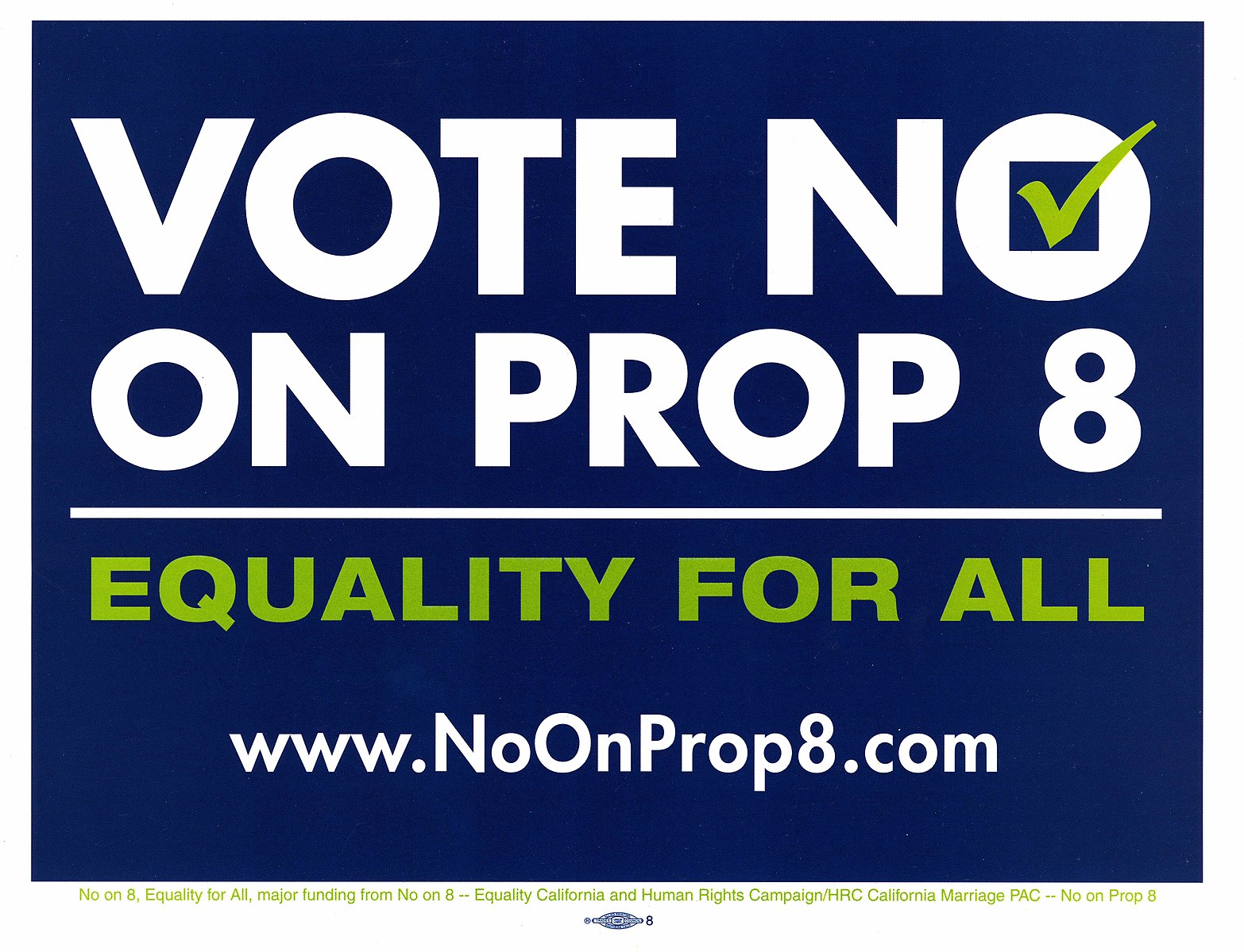Image via the National Museum of American History
It’s kind of a strange day for the queer community. Yes, a California federal appeals court ruled Proposition 8 unconstitutional this morning. But we all know this isn”t the end of the story. As we speak, the law”s backers, ProtectMarriage, are likely filing yet another appeal – this time, the case will be heard by the US Supreme Court, assuming the high court decides to take up the case.
(Update: Many legal analysts are reading the opinion as so narrowly applying to the specific case of California that the Supreme Court may refuse to take up the case. Read more here.)
So the decision that thousands of people are celebrating today in WeHo and the Castro and the West Village is really rather anti-climactic, at least in what it means for couples looking to get hitched – marriage licenses won”t be issued to same-sex California couples until the appeals process is over, which probably won”t be in the near future. Legally, though, there”s a lot here to celebrate, especially when taken in context of the previous decisions on which this case must eventually be decided once and for all. Here”s a quick breakdown of the actual opinion and what it means for the next steps of the case.
The 3 judges who decided the case this time around focused on a very strict interpretation of what the law did and did not do for California”s LGBT community and for California as a whole. While ProtectMarriage relied on court testimony that gay marriage was harmful to heterosexual families and that it violated religious freedom, the court rejected these arguments as irrelevant to the case, suggesting that such evidence will have less weight if and when it is used in the next appeal.
Instead, the court honed in on the fact that the law “stripped same-sex couples of the right they previously possessed from the State…an important right – the right to obtain and use the designation of “marriage” to describe their relationships. Nothing more, nothing less.” They found the law unconstitutional precisely because it discriminated against a minority group without “legitimate reason,” deciding that the people of California did not have a right to vote to take away “a right as important as the right to marry.” Employing similar language to that of the Supreme Court in the opinion for the 1996 case of Lawrence v. Texas, which denied states the right to enact laws criminalizing homosexual sex, this opinion acknowledges the fact established in Lawrence that morality alone is not an adequate reason to discriminate against a group of people.
As the opinion states, “Proposition 8 serves no purpose, and has no effect, other than to lessen the status and human dignity of gays and lesbians in California, and to officially reclassify their relationships and families as inferior to those of opposite-sex couples.” The fact that the court found no “legitimate justification” for disallowing gay marriage bodes well for future interpretation of the law in higher courts, especially the Supreme Court, where this language was first employed.
Of course, this was a largely liberal judicial panel; the Supreme Court promises to be a much closer call, especially with Justice Scalia”s track record of striking down challenges to controversial state statutes, no matter how discriminatory they might be. But every little bit helps; the precise words in this ruling will be read very closely, and taken very seriously, when this case is eventually resolved.
Read the official judicial document here.

